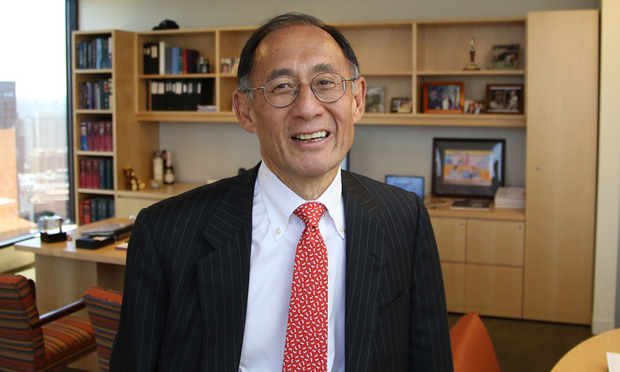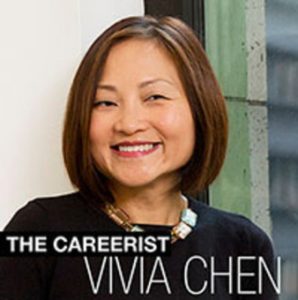Cappuccino, Bill Lee and the Harvard Admissions Case
"The people bringing the suit would like to return to a day that's long passed," says the Wilmer partner representing the school in a challenge to its admission policies regarding Asian-Americans.
December 05, 2018 at 02:53 PM
6 minute read
 Bill Lee.
Bill Lee.
Almost every time I'm with a group of Asian-American lawyers, the talk inevitably turns to the Harvard University admissions case in which the Big-H was accused of discrimination against Asian-American applicants. The headline-grabbing trial took place this fall, but what's the upshot?
Rest assured, it's still alive. It's in a quiet phase, as both sides await federal judge Allison Burroughs' decision, which is expected sometime in the spring or summer of 2019.
As you might recall, Harvard got hit with a lawsuit by Students for Fair Admissions, a group that's against race-based admissions. (The group was founded by conservative Edward Blum,  who's behind several suits challenging affirmative action.) SFFA's central argument is that Harvard discriminates against Asian-Americans by setting a higher bar for them in order to gain admission.
who's behind several suits challenging affirmative action.) SFFA's central argument is that Harvard discriminates against Asian-Americans by setting a higher bar for them in order to gain admission.
As an Asian-American and a parent of a child in the throes of applying to colleges, I'm naturally intrigued by this case. So I decided to go directly to the source to get the inside scoop: the lawyers who argued the case.
Over cups of cappuccino at New York's Regency Hotel on a blustery afternoon, I met with Harvard's lawyer William Lee, a partner and former co-chairman at Wilmer Cutler Pickering Hale and Dorr, to discuss his views. Below is an edited version of that conversation, plus additional exchanges over the phone and email. (In my next post, I'll talk with Barlitt Beck partners John Hughes and Adam Mortara, lawyers for SFFA.)
How did you—an intellectual property litigator—get tapped to represent Harvard on this high-profile trial? Harvard had hired my partner Seth Waxman for the case because it might go the Supreme Court. But [then-president of Harvard] Drew Gilpin Faust called me and said, “Bill, why don't you handle the trial part?” I had been involved with Harvard for a number of years: I was a senior fellow of the Harvard Corporation, then chair. During the trial, we had an old Chinese guy, an old Jewish guy, a young woman partner [Felicia Ellsworth] and an African-American partner [Danielle Conley]. The other side had four Clarence Thomas clerks—all white!
This case is full of hot-button racial issues. Some say the case is an attempt to destroy affirmative action by pitting Asian-Americans against other minorities. Do you see it that way? It's a risk that could occur. But, you know, the Asian-American response is not monolithic. Some feel that they're being used as a vehicle to attack other minorities. Others feel differently. What it shows is that Asian-Americans are diverse, robust and open to different views.
So you don't see a nefarious intent behind the lawsuit? I don't think there's nefarious intent. But I do think the people bringing the suit would like to return to a day that's long passed. The same people who might have thought it odd for Harvard to offer me a spot back in 1968 are probably the same ones who want to drastically decrease the number of African-Americans and Hispanics at Harvard today.
I think Asian-Americans are struggling with this case. Many support diversity and affirmative action, but the information that came out of the trial suggests that Harvard holds Asians to higher standards. For instance, it came out that a white high school junior from a rural area with a 1310 on the PSAT will get invited by Harvard to apply, while an Asian girl needs a 1350 and an Asian guy needs a 1380. [Opposing counsel] was being unfair. They picked one year in which sparse country whites had lower scores than Asian-Americans. They also ignored the fact that it's the ACT not the SAT that students in that group tend to take. In other years, the scores for Asian-Americans were lower than whites. You have to look at the evidence carefully.
What about the fact that Asians get consistently low ratings from Harvard on personality? Doesn't that suggest bias? The personal rating is based on the student's essay, recommendation by the guidance counselor, other recommendations, alumni interview or staff interview and faculty review. The personal rating is based on input by a variety of people.
But doesn't that low personality rating go to the stereotype that Asians are not outgoing or likable? Asians came out ahead in academics and extracurricular. And their score on personality was not that different from whites. I don't think the personal rating requires you to be outgoing. I don't know where that idea comes from. Just walk around Harvard Yard, and you'll see students who are outgoing, and some who are quiet and contemplative—and that's true for all ethnicities.
What kind of reaction are you getting from the public about this case? I've gotten a significant amount of emails, and 95 percent are supportive. I appreciate people who contacted me to tell me their support as well as those who disagree. I did hear from a lawyer in Texas who called me a “stupid, little Asian.”
Wow. Well, at least this person didn't say “stupid, little Oriental.” Any blowback from Asian-Americans? I have an Asian-American friend who calls you a traitor. She asked me, “How can Bill Lee undertake such a representation?” I've had discussions with [Asian-Americans] who disagree with me, and I'll be happy to talk with your friend. Look, each application that comes in is read, first, by the person assigned to that region, then it goes to a committee of seven people, then it goes to the full committee where 40 people are sitting in a room. Folks calling me a traitor would have to believe that a process that involves voting by 40 people results in discrimination against Asians.
Are you feeling upbeat that you'll prevail in this case? No, not upbeat. I think the case raises an important issue—one that's now being discussed openly. The question of whether race can be used in college admissions is a critical one. We asked for a trial so that facts would be on record. Harvard wanted a trial because we think facts count. It's important that people base their conclusion on facts, particularly in this current climate. I think Harvard has been honest and open. What's missing is generous listening.
Contact Vivia Chen at [email protected]. On Twitter: @lawcareerist.
This content has been archived. It is available through our partners, LexisNexis® and Bloomberg Law.
To view this content, please continue to their sites.
Not a Lexis Subscriber?
Subscribe Now
Not a Bloomberg Law Subscriber?
Subscribe Now
NOT FOR REPRINT
© 2025 ALM Global, LLC, All Rights Reserved. Request academic re-use from www.copyright.com. All other uses, submit a request to [email protected]. For more information visit Asset & Logo Licensing.
You Might Like
View AllTrending Stories
- 15th Circuit Considers Challenge to Louisiana's Ten Commandments Law
- 2Crocs Accused of Padding Revenue With Channel-Stuffing HEYDUDE Shoes
- 3E-discovery Practitioners Are Racing to Adapt to Social Media’s Evolving Landscape
- 4The Law Firm Disrupted: For Office Policies, Big Law Has Its Ear to the Market, Not to Trump
- 5FTC Finalizes Child Online Privacy Rule Updates, But Ferguson Eyes Further Changes
Who Got The Work
J. Brugh Lower of Gibbons has entered an appearance for industrial equipment supplier Devco Corporation in a pending trademark infringement lawsuit. The suit, accusing the defendant of selling knock-off Graco products, was filed Dec. 18 in New Jersey District Court by Rivkin Radler on behalf of Graco Inc. and Graco Minnesota. The case, assigned to U.S. District Judge Zahid N. Quraishi, is 3:24-cv-11294, Graco Inc. et al v. Devco Corporation.
Who Got The Work
Rebecca Maller-Stein and Kent A. Yalowitz of Arnold & Porter Kaye Scholer have entered their appearances for Hanaco Venture Capital and its executives, Lior Prosor and David Frankel, in a pending securities lawsuit. The action, filed on Dec. 24 in New York Southern District Court by Zell, Aron & Co. on behalf of Goldeneye Advisors, accuses the defendants of negligently and fraudulently managing the plaintiff's $1 million investment. The case, assigned to U.S. District Judge Vernon S. Broderick, is 1:24-cv-09918, Goldeneye Advisors, LLC v. Hanaco Venture Capital, Ltd. et al.
Who Got The Work
Attorneys from A&O Shearman has stepped in as defense counsel for Toronto-Dominion Bank and other defendants in a pending securities class action. The suit, filed Dec. 11 in New York Southern District Court by Bleichmar Fonti & Auld, accuses the defendants of concealing the bank's 'pervasive' deficiencies in regards to its compliance with the Bank Secrecy Act and the quality of its anti-money laundering controls. The case, assigned to U.S. District Judge Arun Subramanian, is 1:24-cv-09445, Gonzalez v. The Toronto-Dominion Bank et al.
Who Got The Work
Crown Castle International, a Pennsylvania company providing shared communications infrastructure, has turned to Luke D. Wolf of Gordon Rees Scully Mansukhani to fend off a pending breach-of-contract lawsuit. The court action, filed Nov. 25 in Michigan Eastern District Court by Hooper Hathaway PC on behalf of The Town Residences LLC, accuses Crown Castle of failing to transfer approximately $30,000 in utility payments from T-Mobile in breach of a roof-top lease and assignment agreement. The case, assigned to U.S. District Judge Susan K. Declercq, is 2:24-cv-13131, The Town Residences LLC v. T-Mobile US, Inc. et al.
Who Got The Work
Wilfred P. Coronato and Daniel M. Schwartz of McCarter & English have stepped in as defense counsel to Electrolux Home Products Inc. in a pending product liability lawsuit. The court action, filed Nov. 26 in New York Eastern District Court by Poulos Lopiccolo PC and Nagel Rice LLP on behalf of David Stern, alleges that the defendant's refrigerators’ drawers and shelving repeatedly break and fall apart within months after purchase. The case, assigned to U.S. District Judge Joan M. Azrack, is 2:24-cv-08204, Stern v. Electrolux Home Products, Inc.
Featured Firms
Law Offices of Gary Martin Hays & Associates, P.C.
(470) 294-1674
Law Offices of Mark E. Salomone
(857) 444-6468
Smith & Hassler
(713) 739-1250














